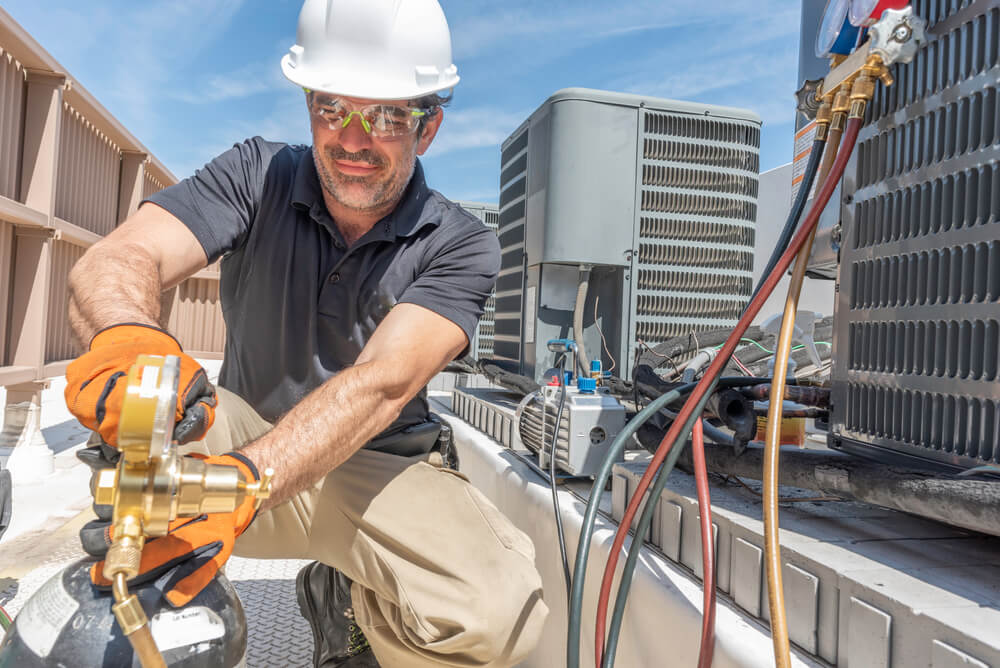Commercial Refrigeration Canoga Park - How to choose an HVAC contractor
Commercial Refrigeration Canoga Park - How to choose an HVAC contractor
Blog Article
HVAC Financing Options Canoga Park Book Fireplace, Furnace, AC, & Heat Services
Indoor air quality is essential for sustaining a healthy residing setting. Many people spend a significant amount of time indoors, making understanding the common factors affecting indoor air quality essential for general well-being. Poor air quality can lead to varied health issues, including respiratory problems, allergies, and other long-term conditions.
One of the primary contributors to indoor air quality is air flow. Proper air flow helps flow into fresh air within an area, diluting pollution and moisture. Insufficient ventilation can trap contaminants, leading to increased concentrations of airborne toxins. Homes and buildings which are too tightly sealed for energy efficiency can lead to poor airflow, emphasizing the need for balanced air flow methods.
Another essential factor is the presence of indoor pollution. These can come from quite so much of sources, including family cleaners, paints, and pesticides. Volatile natural compounds, or VOCs, are generally discovered in lots of household merchandise. When these products are used or stored improperly, they'll release dangerous gases into the air, contributing to compromised indoor air quality.
Humidity ranges significantly affect air quality as nicely. High humidity can create a breeding floor for mildew, dust mites, and other allergens. Conversely, low humidity can result in dry skin and respiratory discomfort. It's essential to maintain optimum humidity levels, usually between 30% and 50%, to promote a comfortable and wholesome indoor surroundings.
HVAC Troubleshooting Guide Canoga Park Commercial HVAC Services
Temperature plays a job in how air quality is perceived and its precise composition. Comfortable temperatures are necessary not only for physical well-being but also for mental focus. Fluctuations in temperature can have an effect on the distribution of pollution as well as the performance of heating and cooling methods. Thus, sustaining stable temperatures is significant for enhancing indoor air quality.
Common sources embody volatile organic compounds (VOCs) from paints and cleaning products, mildew, dust, pet dander, tobacco smoke, and outdoor pollutants that enter buildings. Managing these sources is crucial for maintaining good indoor air quality.
How can humidity levels influence indoor air quality?
High humidity can promote mould progress and dust mites, while low humidity could cause respiratory issues and discomfort. Maintaining indoor humidity levels between 30-50% can help mitigate these effects.
What function does air flow play in indoor air quality?
- Indoor Climate Control Canoga Park
Licensed HVAC Technician Canoga Park What does an HVAC Contractor Do?
Proper air flow is essential for diluting indoor pollutants and bringing in recent air. It helps scale back the focus of dangerous substances and supports general respiratory health by guaranteeing sufficient oxygen ranges.

Yes, long-term exposure to poor indoor air quality can lead to respiratory issues, allergies, headaches, and in some instances, severe health problems such as bronchial asthma and heart problems.
HVAC Installation Canoga Park Heating & AC Services - HVAC Contractor
How usually ought to I change air filters in my HVAC system for optimal air quality?
Typically, it's really helpful to vary HVAC air filters each 1-3 months, depending on utilization and the type of filter. Regular maintenance helps make sure the system operates effectively and improves indoor air quality.
Preventive HVAC Maintenance Canoga Park Find a Dealer or Contractor
What are some simple ways to enhance indoor air quality at home?
Simple measures include keeping windows open for contemporary air when weather permits, using an air purifier, lowering the use of harsh chemical compounds, sustaining humidity ranges, and often cleaning and vacuuming to attenuate dust.
Ductless Mini Split Canoga Park Find a Local Plumber or Licensed HVAC Contractor
Can indoor crops help enhance air quality?
Yes, sure indoor crops have been shown to absorb toxins and enhance indoor air quality - HVAC Troubleshooting Canoga Park. Plants like spider vegetation, snake plants, and peace lilies can improve aesthetics while selling more healthy air.
Is indoor air quality worse in winter months?
Local HVAC Contractor Canoga Park AC & Heating Repair Services - HVAC Contractor
Indoor air quality can worsen in winter due to lowered ventilation from sealed home windows and increased heating, which can dry out the air and elevate indoor pollutants. It's essential to monitor and manage air quality year-round.

How does outdoor air quality have an effect on indoor air quality?
Outdoor pollution can infiltrate indoor spaces through home windows, doorways, and air flow systems. Poor outdoor air quality can significantly influence indoor air, so consciousness and preventive measures are key to sustaining a healthy surroundings.
Commercial Refrigeration Canoga Park Heating Air Conditioning Contractor
What steps ought to companies take to ensure good Continue indoor air quality?
Businesses ought to perform regular maintenance on HVAC methods, guarantee adequate ventilation, conduct air quality assessments, decrease the use of poisonous materials, and encourage a smoke-free setting to advertise worker well being and productivity. Report this page